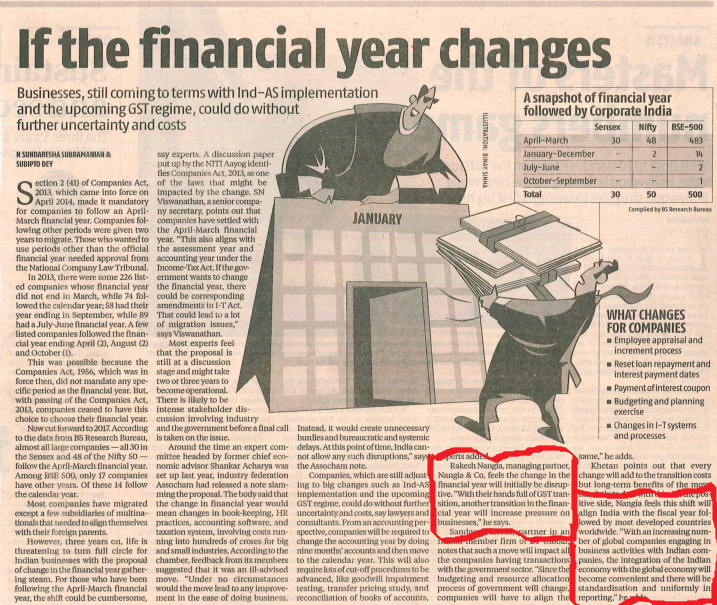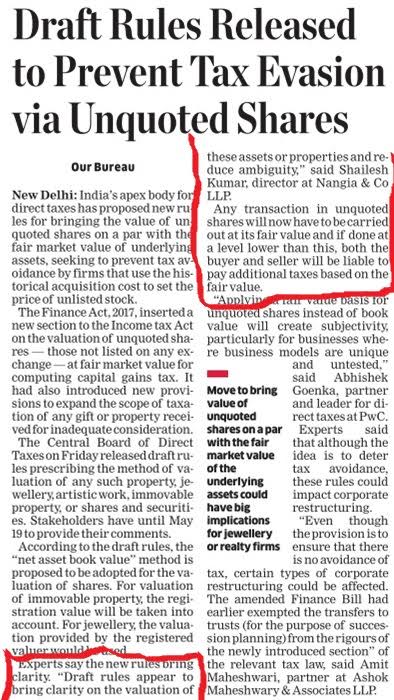Section 2 (41) of Companies Act, 2013, which came into force on April 2014, made it mandatory for companies to follow an April-March financial year. Companies following other periods were given two years to migrate. Those who wanted to use periods other than the official financial year needed approval from the National Company Law Tribunal. In 2013, there were some 226 listed companies whose financial year did not end in March, while 74 followed the calendar year; 58 had their year ending in September, while 89 had a July-June financial year.
1 – Rakesh Nangia, Managing Partner, Nangia & Co LLP shares his views on aforementioned story for
Business Standard.
2 – Shailesh Kumar, Director- Direct Taxation, Nangia & Co LLP shares his views on
Draft rules released to prevent tax evasion via unquoted shares for
Economic Times










